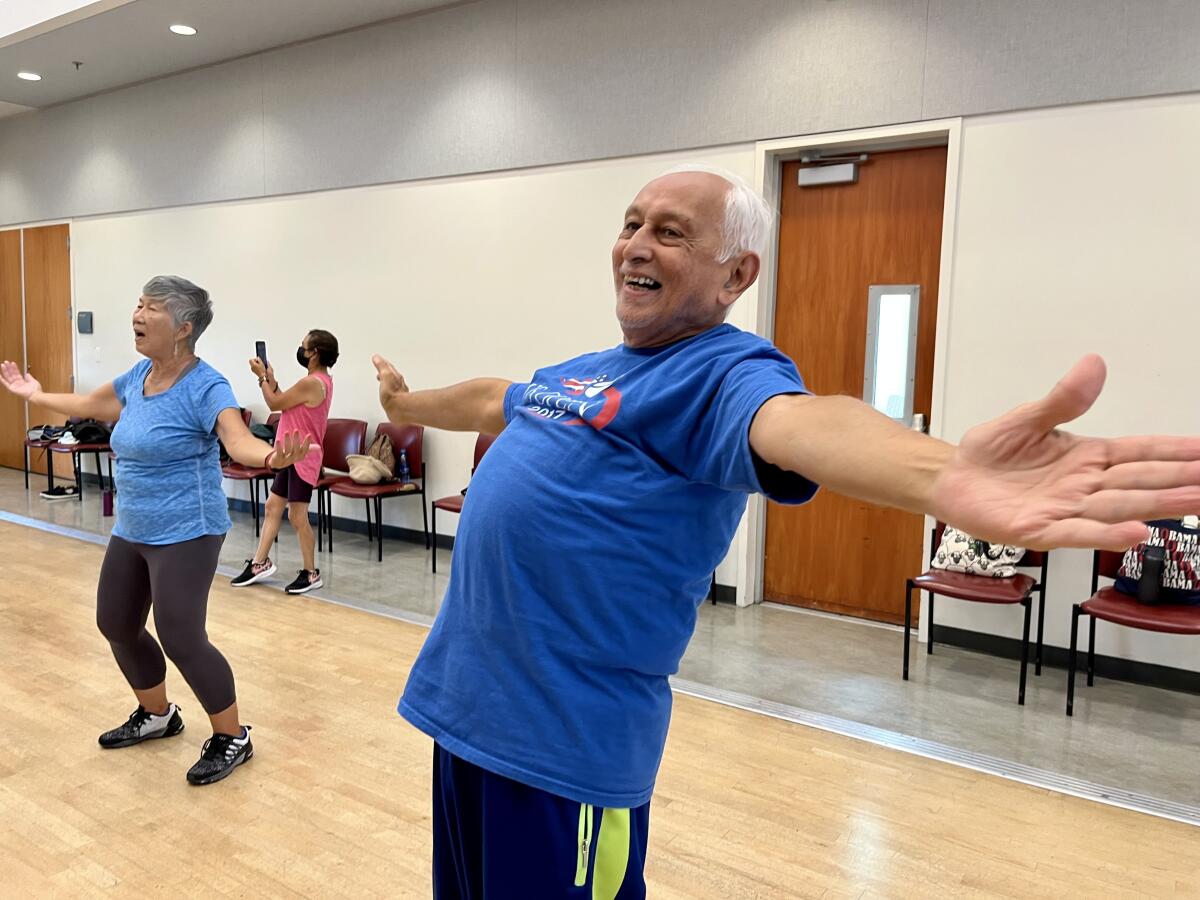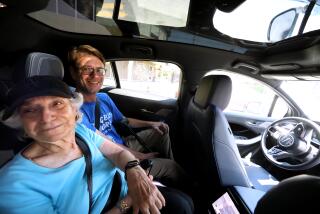On 10th anniversary of my death, still moving forward — in search of the right remote

- Share via
Late August marked the 10-year anniversary of my death.
I didn’t give it much thought because I was busy, with visits to my cardiologist and a foot surgeon. The older you get, the more time you lose trying to stay alive.
Then I got an email from a woman who called herself an “ole lady” in her mid-70s, which I don’t think of as old. West Side Berti had read my column about shopping for an electric car and said no thanks, she’s happy to stick with her 2003 Toyota.
“She has both a CD player and a cassette player!!!!!” wrote Berti of her chariot.
She had to rent a car recently, but it had “so much new-fangled tech stuff in it” she couldn’t figure out what was what. Berti said she still uses a landline phone with an answering machine to screen her calls, although at the height of the pandemic, she did use Zoom to stay in touch with friends.
I can easily identify with an aversion to the insidious, dehumanizing intrusion of technology into our lives.
You need your watch to find your phone, but why bother, because you can’t get a living person on the line. You need one remote to turn on the TV, one to change the channel, one to stream and one to beat yourself over the head.
You need a password to change your password, but then you have to decide whether you want to sign in on Facebook, Google or email, which requires, of course, a password.
“I really struggle, and a lot of it is attitude. I could learn it, but a part of me just doesn’t want to,” said Mike Washington, one of the regulars I’ve gotten to know at Tolliver’s Barbershop in South L.A.
Washington, in his 70s, bought an electric Mustang and said he can’t decipher half the tech options. His wife tells him that he better shape up, but Washington says he only learns what he has to, and nothing more.
“Us old broads are trying to learn the new technology because, I mean, we’re kind of trapped,” said Linda Harner, whom I met at the Culver City Senior Center, where she takes a Spanish class.
You just can’t deal effectively with the modern world unless you learn some tech skills, said Harner, who recently helped a disabled friend. The woman, who lives alone, was recovering from knee surgery and needed to create an account with her care provider.
“I helped her go online to get a password,” Harner said.
“Society is not built for aging,” said Jill Thomsen, the senior center supervisor. She’s in her 30s, she said, and even she is sometimes daunted.
“You get to the point where it’s like, TikTok? I’m not going to another social media site and trying to figure that out,” said Thomsen.
And yet, Thomsen noted, when the pandemic shut the doors at the senior center, some of the members used technology to stay connected.
“It’s a blessing and a curse,” said Maribeth Dougherty, who teaches the MindBody dance class at the senior center and ran her classes on Zoom during the shutdown.
As maddening as technology can be, Dougherty said, “when you’re making new neural pathways in your brain, there’s an upside.”
There’s an upside, as well, to the life force on a dance floor, with dozens of people defying time. I walked into Dougherty’s class and saw lots of inspiration.
“The little woman in the front, who I believe dances harder than anyone in the entire room, is about to turn 98, and she’s a Holocaust survivor. There’s another woman, from France, who’s a Holocaust survivor at 95 and moves like a teenager,” Dougherty later told me.
I noticed one nimble gent with a U.S. Open tennis T-shirt and a smile as wide as Santa Monica Bay.
“I am right now speaking to you on my iPhone while watching doubles tennis on television,” Homi Gandhi, 81, said when I called him the next day. He drives an electric car, and when I texted him the photos I had taken of him, he nimbly texted them to his children and grandchildren, who weighed in on which they liked best.
Gandhi, a retired accountant, said he doesn’t like how technology is abused by those who target seniors with solicitous sales pitches and otherwise invade their privacy. But whether it’s a Zoom class or communicating with family, he doesn’t want to get left behind.
“There’s no other way out,” Gandhi said.
Pete Matus, a teacher and events coordinator at the Pasadena Senior Center, told me the pandemic turned a lot of members into tech whizzes. They bought tablets and smartphones and learned how to shop for groceries, explore social media and take classes online.
There were some glitches. Namely, a few cases of people who forgot to disable the video feed while answering nature’s calls. And not everyone bought into the modern world, but the majority did.
“I’d say about 80% of them are there to change with the times,” said Matus, who teaches an iPhone and iPad class and told me that on scenic walks, seniors are learning photography and how to edit their reels.
Dr. Gene Dorio, a house call geriatric specialist in Santa Clarita, told me he tells tech-resistant patients they’re perfectly capable of learning the basics.
“I think we’re told or made to believe that tech is above our heads, but it’s nonsense, because once you learn it, you realize it’s not a problem,” said Dorio, a member of the L.A. County Commission for Older Adults.
Dorio told me that he recently visited a 95-year-old patient in a home where the temperature matched her age. She thought the air conditioning unit was broken. Dorio took a look, replaced a battery, and the temperature dropped 10 degrees in the time he was there.
Family members and others have to check up on the frail elderly, especially in the middle of deadly heat waves, Dorio said, and help them get a little more comfortable with tech. And senior centers and other organizations need to stress the importance of technology as potentially lifesaving, with various SOS devices that can detect a fall or some other emergency.
Ailing a bit, but determined not to miss a beat
We just need to make sure, with all this technology on the loose, that patient privacy is protected and telemedicine isn’t corrupted, and that life-saving gadgets are available to the many rather than the few.
That brings me back to my death and resurrection 10 years ago. I went into cardiac arrest in post-op, after a knee replacement, but was quickly resuscitated and left the hospital with a new knee and a pacemaker. I went on to have a second knee replacement a few months later and remained among the living on the second try.
If my heart does flips, I use a pacemaker monitor to read my condition and alert my cardiologist. During my visit with Dr. Leslie Saxon last week, she said I’m fine to undergo foot surgery if I so choose. She suggested that I consider a smartwatch because wherever I am, it can monitor my heart rate and even do an EKG, which I can download and send to her.
This could come in handy if, to celebrate the 10-year anniversary of my death, I enroll in the MindBody dance class in Culver City, as teacher Dougherty suggested.
I told Dougherty that I have a bum foot and two knee replacements.
“Everyone in class has artificial joints,” she said.
The trick is to keep moving forward, no matter what.
Steve.lopez@latimes.com
More to Read
Sign up for Essential California
The most important California stories and recommendations in your inbox every morning.
You may occasionally receive promotional content from the Los Angeles Times.














